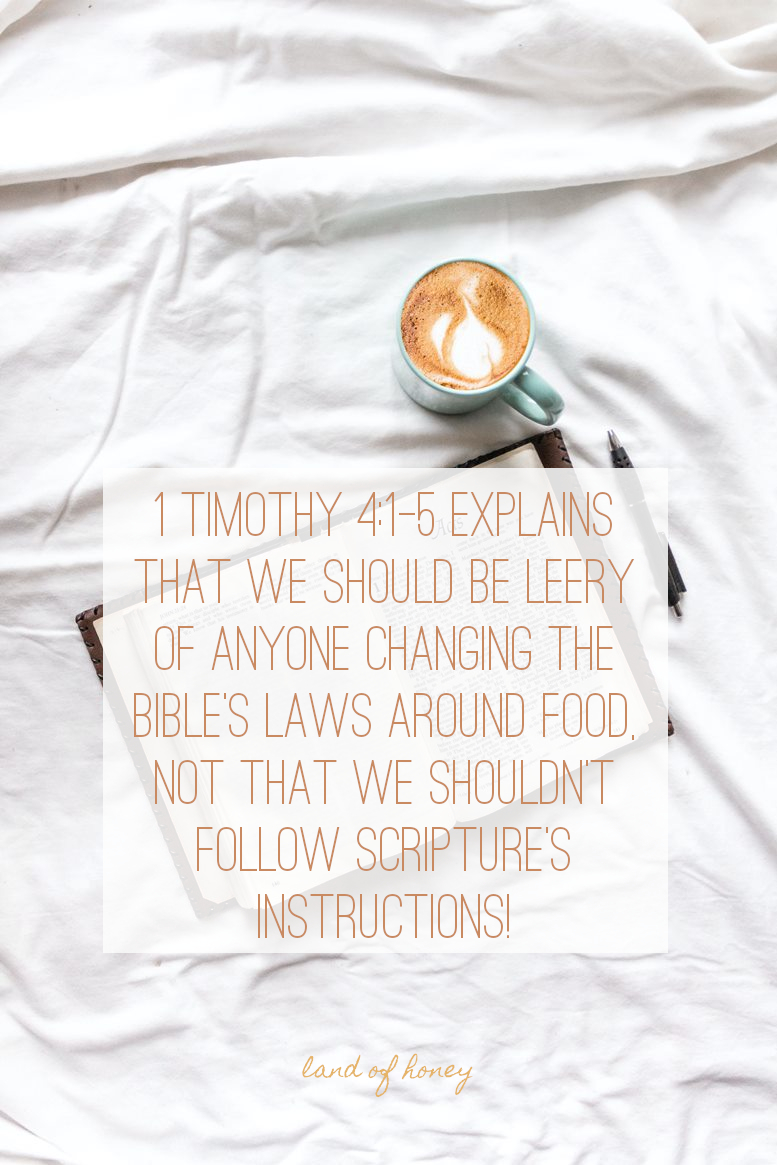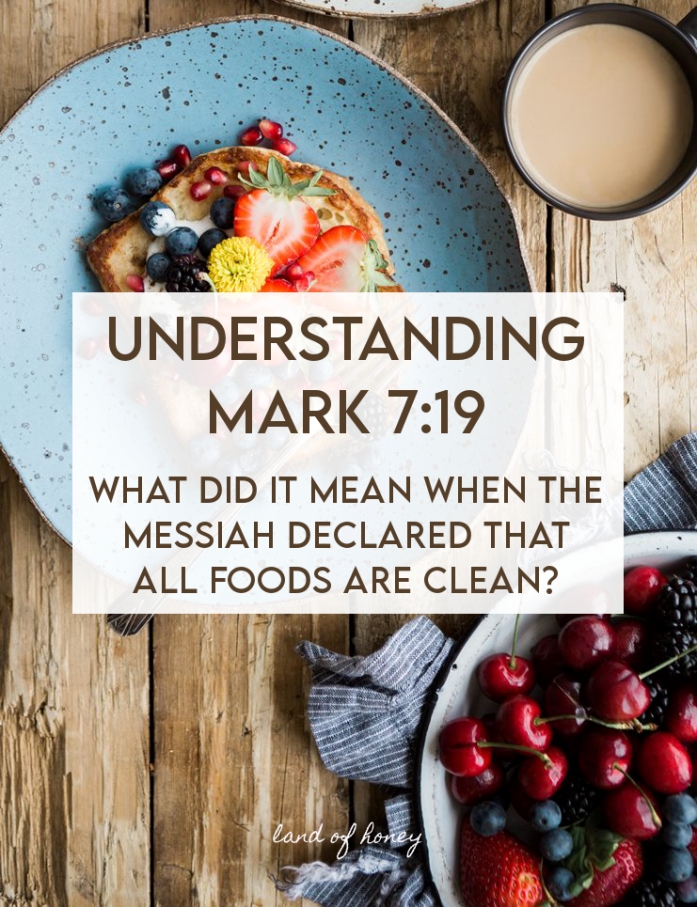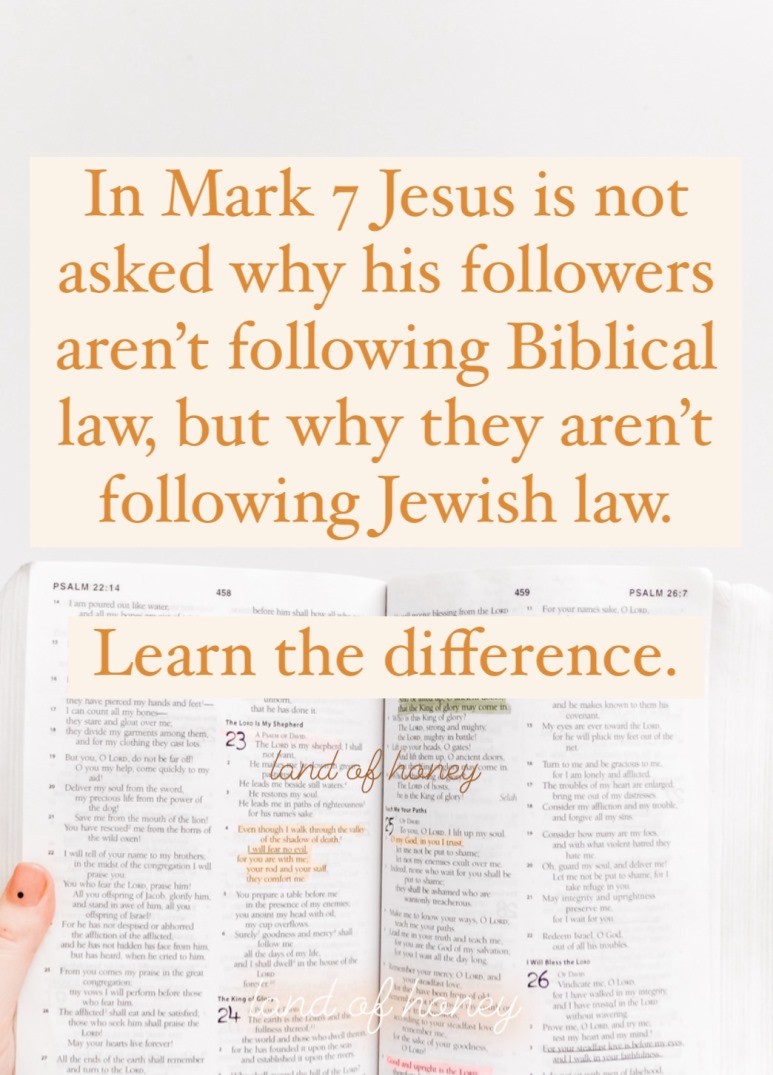A common question related to Biblical eating is what about 1 Timothy 4? Many people believe that this verse not only says that we can eat whatever we want, but that those advocating for following the Bible's dietary laws are following demonic teachings that come from deceptive spirits! Many people think 1 Timothy 4 teaches that the commandments regarding food have been done away with.
Let's take a look at this verse before we discuss how this does not mean that all animals can or should be eaten or that the laws surrounding what we eat are no longer in effect.
"Now the Holy Spirit tells us clearly that in the last times some will turn away from the true faith; they will follow deceptive spirits and teachings that come from demons. These people are hypocrites and liars, and their consciences are dead. They will say it is wrong to be married and wrong to eat certain foods. But God created those foods to be eaten with thanks by faithful people who know the truth. Since everything God created is good, we should not reject any of it but receive it with thanks. For we know it is made acceptable by the word of God and prayer." -1 Timothy 4:1-5
If you come from a background of belief that all the Biblical dietary laws have been done away with, then it's easy to read this passage to mean that literally anything you pray over can be received as food. God created everything to be eaten, right?
But take a closer look at the wording. The issue at hand is not that people are saying it's wrong to eat certain animals. The problem is that they are teaching that certain FOODS are wrong to eat. Big difference here! When the authors of the Bible speak, they do so with the foundational assumption that the Bible has already defined what does and what does not count as "food."
The Bible defines food in:
-Genesis 1:29
"Every seed bearing plant and the fruit trees."
-Leviticus 11
"Of all the animals that live on the land, these are the ones you may eat..." Which goes on to explain which animals, birds, fish, and insects can and cannot be eaten.
The Bible explains that animals that are considered abominable should not be eaten in Leviticus 11:41. They should not be eaten, because they are not food according to Scripture. So when 1 Timothy 4:3 says that God created foods to be eaten, it's talking about what the Bible considers food. It does not mean that everything on the planet is considered fit for consumption. This passage does not mean that animals like pigs, dogs, cats, or shellfish can be eaten if we give thanks, because Paul, the author, did not consider these animals to be food since the Bible says they aren't.
Think this is a crazy idea? If you invite me over and say, "Help yourself to some snacks on the counter," what you mean is that I can eat the food you have out on the counter - things like apple slices, bread, cheese, carrot sticks, and cookies. You're not saying that I can eat the bouquet of flowers, the dish soap, sponge, potted plant, pet goldfish, the receipt for the groceries or whatever else you have on the counter, because you don't consider those things to be food. YHWH did not say that these things are food, so therefore we shouldn't consume them.
What is 1 Timothy 4 talking about then? This warning from Paul is that false teachers will come along who disagree with the Bible and teach that certain things the Bible says can be eaten, shouldn't be. We should always be on guard against anyone who is saying something that contradicts the teachings and commandments of Scripture! It seems likely that Paul could be referring to those who say that any animal or animal products - ones like cows and sheep that the Bible expressly says may be eaten - should not be eaten. This goes against specific instructions of Scripture that enumerate which animals may be eaten, as well as many examples of godly men and women in the Bible eating and serving these products, like when Abraham and Sarah fed meat and curds to their heavenly visitors and the Messiah served fish to his followers.
This could also have to do with many believers who insist on following not just Bible dietary commands, but Jewish kosher laws which add many manmade rules to the simple directions the Bible gives. As we've discussed in other posts, the Bible does not teach that meat and dairy products can't ever cross paths at all, but Jewish laws say they shouldn't even be used in the same kitchen. This is another undue burden to place on others. These rules may be well-intended, but it's still wrong to put manmade rules on par with Biblical law, or to claim that those manmade traditions are the same as what the Living God commands!
1 Timothy 4:5 supports the idea that these people will teach that certain Biblically permissible foods are off limits (as well as teaching that it's wrong to be married). We see that in the phrasing, "We know it is made acceptable by the word of God." This means that the author is referring to animals/foods that the Bible expressly says we can eat. How can we be sure something is food even if a faith movement, pastor, or author say it's not? We check the Bible and see what it says! Paul is drawing attention to the fact that Scripture decides what is acceptable or not before YHWH. Not religious leaders advocating for extra rules. Not people who are sensitive about eating animals. Not people who think that Jesus did away with the food laws. Not well intentioned people fearful of allergies. Not denominational doctrine. Not people who abuse the Bible and say that Scripture only permits veganism. Just the Bible. Scripture is the only thing that gets to decide what food is.
1 Timothy 4:1-5 explains that we should be leery of anyone changing the Bible's laws around food, not that we shouldn't follow Scripture's instructions!
Related posts:
What the Bible Says about Meat and Dairy
Understanding Mark 7:19 and the Messiah Declaring All Foods Clean
The Difference Between Unclean and Abominable




























